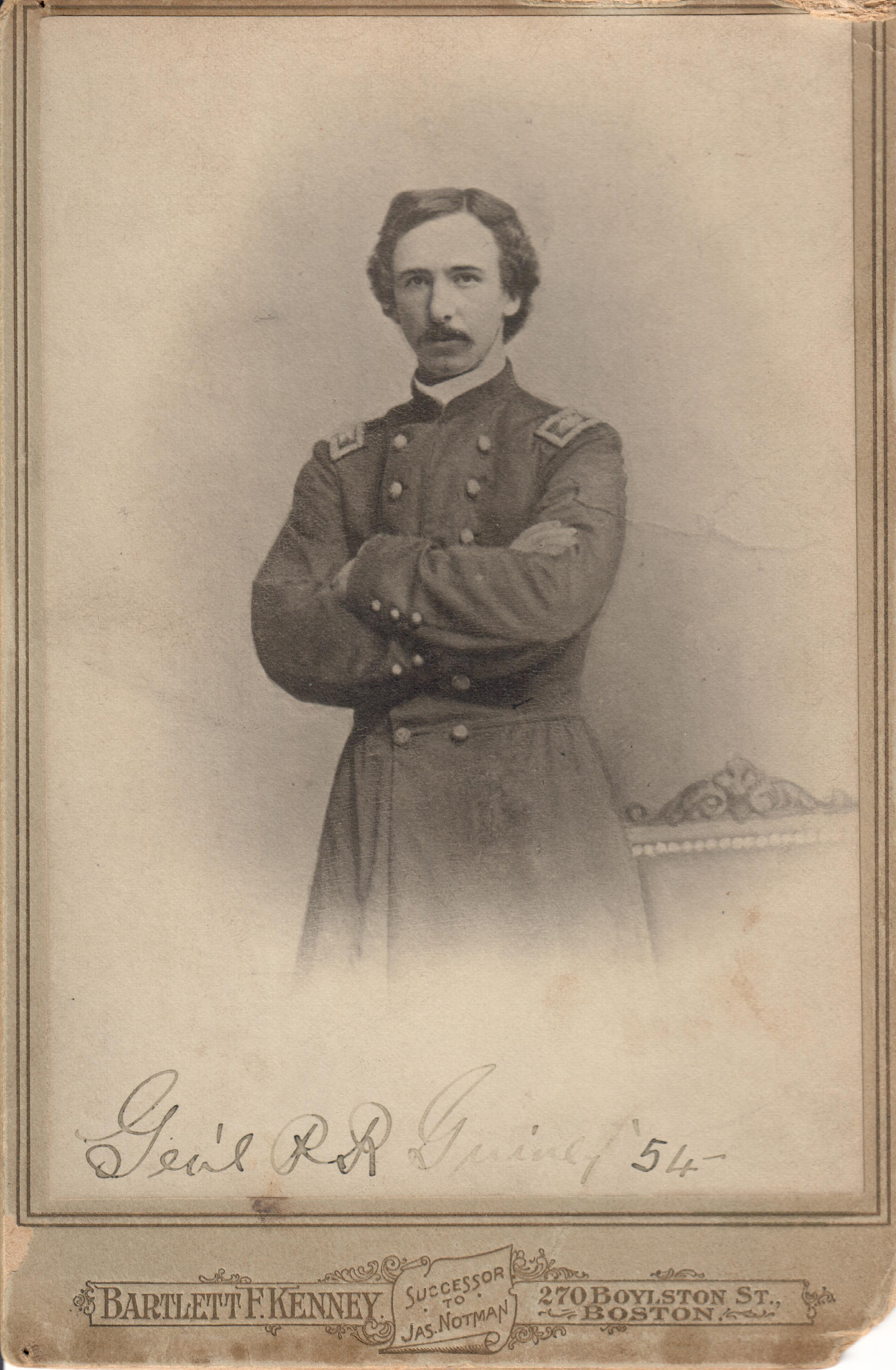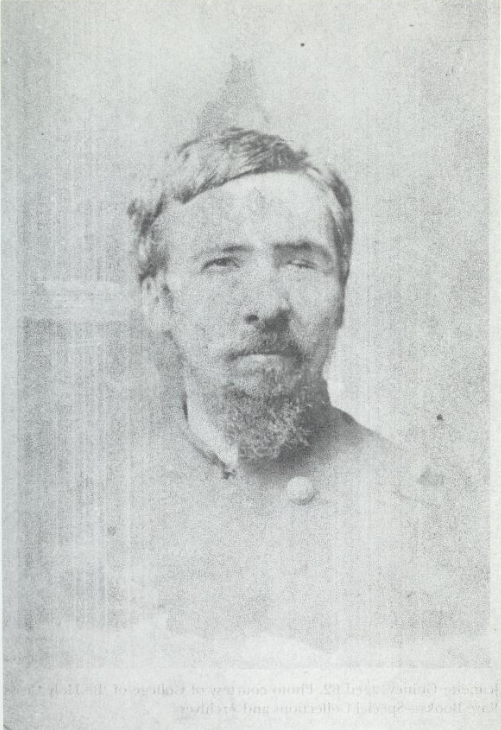
“My wound is still suppurating, and on account of a fracture of my skull, my head troubles me. My eye is gone—and, on the whole, I am very much used up. Time though, with the angellike tenderness with which I am cared for at home, will improve me sufficiently to recommence the practice of my profession. How strange has been my fortune! … The end is not yet.”
- Patrick Guiney, letter to Mrs. Shaw, June 2, 1864. (Samito, p. 247.)
Patrick Guiney (1835-1877) was born in Tipperary, Ireland. His father brought him to America as a young child. As a teenager he worked in a rope factory in Portland, Maine, and then as a machinist in Lawrence, Massachusetts. He attended Holy Cross College in Worcester for a short time before studying for the Bar and becoming a lawyer.
At the start of the Civil War, Guiney helped to recruit Irish Americans for the 9th Massachusetts Infantry Regiment. He enlisted as a private, but the Governor immediately promoted him to lieutenant. When the regiment’s first commander was killed in action, Guiney succeeded him as colonel in July 1862. Guiney would fight in some of the war’s fiercest battles, including Antietam, Fredericksburg, and Chancellorsville. At the Battle of the Wilderness on May 5, 1864, a sharpshooter sent a Minié ball into his face, destroying his left eye. Expected to die from his wounds, he somehow survived after insisting on an operation. Discharged from the U.S. Volunteers on June 21, 1864, he went home to be cared for by his wife, Jeanette, with a disability pension of $22.50 a month.
Guiney returned to work as a lawyer but for the rest of his life endured pain, breathing problems, and dizziness. He stayed active in civic organizations, including as Major-General Commandant of the Veteran Military League, and as one of the founders of the Catholic Union of Boston. He ran unsuccessfully for Congress as an advocate for the rights of workers, animals, prisoners, and the mentally ill. From 1869 until his sudden death in 1877, Guiney worked as the elected registrar of the Probate Court of Suffolk County, Massachusetts.
Guiney’s daughter Louise Imogen Guiney, a successful writer, wrote in a biographical sketch for Holy Cross, “”Whenever the Church and the State have their final roll-calls, and count in… their elect who “hungered and thirsted after justice,” the good knight of Boston who was my father will be remembered."
For more information on veterans pensions, see the article on the U.S. Pension Bureau.
Sources:
- Guiney, L.I. (1896). “General Guiney.” Holy Cross Purple. (Vol. 3). College of the Holy Cross. 37-43. Retrieved June 28, 2022.
- Guiney, P. R. (1998). Commanding Boston’s Irish Ninth: The Civil War Letters of Colonel Patrick R. Guiney, Ninth Massachusetts Volunteer Infantry. (C. G. Samito, Ed.). Fordham University Press.
- Guiney, P.R. (1874). [Image.] Boston Public Library.
- Guiney, P.R. (1854). Holy Cross University Archives.
- Holy Cross CrossWorks, Col. Patrick Guiney Letters.




